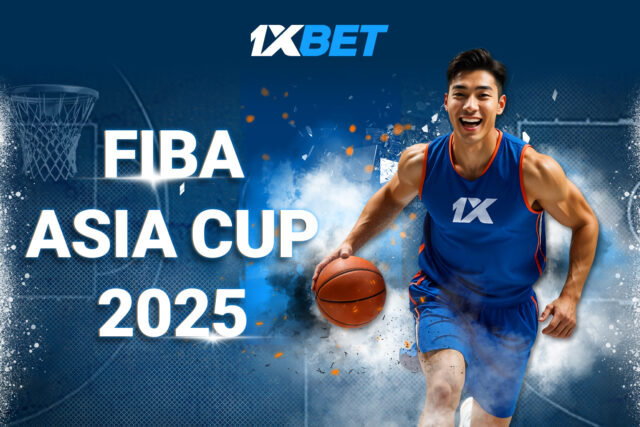FIBA Asia Cup 2025 in Jeddah unfolded as a thrilling spectacle of high-stakes basketball under the soaring roof of the King Abdullah Sports City Hall, a 15 000-seat arena pulsing with energy from August 5 to 17. Sixteen national teams from Asia and Oceania clashed for continental supremacy in a cutthroat format where only the top team from each group advanced directly to the quarterfinals, while second and third places faced off in perilous play-in rounds.
Australia entered as the defending champion and world No. 7, determined not just to win again but to make history with a third consecutive title. Facing powerhouses like China – Asia Cup’s most successful nation – redemption-seeking Lebanon, and a Philippines squad electrified by NBA guard Jordan Clarkson, Australia’s dominance was under pressure. Group C served up drama as China, Jordan, India, and host Saudi Arabia battled fiercely, India showing unexpected fire and Saudi backed by fervent home support. Early group matches like South Korea vs Lebanon and Chinese Taipei vs Jordan ratcheted up the intensity. Ultimately, group play saw the favorites – Australia and China – assert themselves, but each game held tension and unpredictability.
Australia entered as the defending champion and world No. 7, determined not just to win again but to make history with a third consecutive title. Facing powerhouses like China – Asia Cup’s most successful nation – redemption-seeking Lebanon, and a Philippines squad electrified by NBA guard Jordan Clarkson, Australia’s dominance was under pressure. Group C served up drama as China, Jordan, India, and host Saudi Arabia battled fiercely, India showing unexpected fire and Saudi backed by fervent home support. Early group matches like South Korea vs Lebanon and Chinese Taipei vs Jordan ratcheted up the intensity. Ultimately, group play saw the favorites – Australia and China – assert themselves, but each game held tension and unpredictability.
In the play-in rounds, nothing matched the intensity of the Philippines’ overtime 95-88 triumph over Saudi Arabia, a game defined by Justin Brownlee’s 30 points, AJ Edu’s commanding 17 points and 12 rebounds, and Kevin Quiambao’s 17 points, fanning hopes of a deep run despite the odds.
As the quarterfinals began, Australia charged in undefeated and emerged dominant, drubbing Iran 92-48 and dispatching the Philippines 84-60. China advanced with a 98-84 victory over New Zealand, setting up a final showdown between the two titans.
The bronze medal match proved dramatic: Iran overcame New Zealand 79-73, propelled by veteran power forward Arsalan Kazemi’s 16 points, 15 rebounds, and clutch plays, alongside Seyed Jafari’s 22 points and five three-pointers. New Zealand mounted a furious comeback, narrowing the gap in the final seconds, but Kazemi iced the game with composure at the free-throw line.
The championship final ignited a frenzy as Australia overcame a 15-point second-quarter deficit to edge China 90-89. Xavier Cooks poured in 30 points, grabbed nine rebounds, and earned MVP honors for the final. Jaylin Galloway added 23 points – including six three-pointers – and was named tournament MVP and All-Star Five, joined by teammate Jack McVeigh. William Hickey’s late-game contributions – 15 points, seven rebounds, four assists, and two blocks – proved decisive. Despite early dominance from China and strong showings by veterans Hu Mingxuan (26 points and five threes) and Hu Jinqiu (20 points and 10 rebounds), Australia’s relentless fightback sealed their unbeaten run and historic three-peat, extending their Asia Cup dominance to an 18-0 record.
Ultimately, Australia stood atop the podium again, China earned silver, Iran claimed bronze, and New Zealand finished fourth. The tournament showcased Australia’s sustained excellence, China’s return to the elite, Iran’s resilience, and the Philippines’ spirit and surprise runs. The Jeddah event delivered a festival of emotion, intensity, and unforgettable moments, reinforcing Asia’s place on the global basketball map and etching the Asia Cup 2025 into memory as a celebration of the sport at its passionate best.
Australia’s legacy grows, but new narratives emerge: rising underdogs, shifting power balances, and the promise that Asia’s basketball future is as thrilling as this tournament crescendo proved it to be.
As the quarterfinals began, Australia charged in undefeated and emerged dominant, drubbing Iran 92-48 and dispatching the Philippines 84-60. China advanced with a 98-84 victory over New Zealand, setting up a final showdown between the two titans.
The bronze medal match proved dramatic: Iran overcame New Zealand 79-73, propelled by veteran power forward Arsalan Kazemi’s 16 points, 15 rebounds, and clutch plays, alongside Seyed Jafari’s 22 points and five three-pointers. New Zealand mounted a furious comeback, narrowing the gap in the final seconds, but Kazemi iced the game with composure at the free-throw line.
The championship final ignited a frenzy as Australia overcame a 15-point second-quarter deficit to edge China 90-89. Xavier Cooks poured in 30 points, grabbed nine rebounds, and earned MVP honors for the final. Jaylin Galloway added 23 points – including six three-pointers – and was named tournament MVP and All-Star Five, joined by teammate Jack McVeigh. William Hickey’s late-game contributions – 15 points, seven rebounds, four assists, and two blocks – proved decisive. Despite early dominance from China and strong showings by veterans Hu Mingxuan (26 points and five threes) and Hu Jinqiu (20 points and 10 rebounds), Australia’s relentless fightback sealed their unbeaten run and historic three-peat, extending their Asia Cup dominance to an 18-0 record.
Ultimately, Australia stood atop the podium again, China earned silver, Iran claimed bronze, and New Zealand finished fourth. The tournament showcased Australia’s sustained excellence, China’s return to the elite, Iran’s resilience, and the Philippines’ spirit and surprise runs. The Jeddah event delivered a festival of emotion, intensity, and unforgettable moments, reinforcing Asia’s place on the global basketball map and etching the Asia Cup 2025 into memory as a celebration of the sport at its passionate best.
Australia’s legacy grows, but new narratives emerge: rising underdogs, shifting power balances, and the promise that Asia’s basketball future is as thrilling as this tournament crescendo proved it to be.
As the official global partner of FIBA, 1xBet will be part of this journey – connecting fans everywhere with the intensity and drama of the Asia Cup. With all games centralized in one arena, a stacked field of elite teams, and crowds fueling every contest, the 2025 edition promises to be more than just a basketball competition. It is shaping up as a festival of sport, passion, and unforgettable moments that will echo long after the final buzzer.





